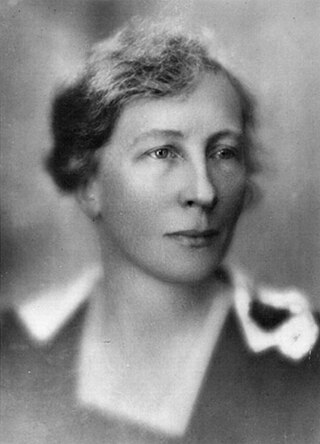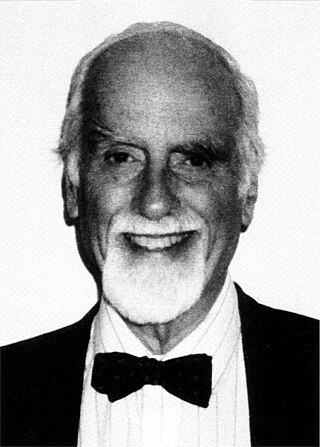Industrial and organizational psychology "focuses the lens of psychological science on a key aspect of human life, namely, their work lives. In general, the goals of I-O psychology are to better understand and optimize the effectiveness, health, and well-being of both individuals and organizations." It is an applied discipline within psychology and is an international profession. I-O psychology is also known as occupational psychology in the United Kingdom, organisational psychology in Australia and New Zealand, and work and organizational (WO) psychology throughout Europe and Brazil. Industrial, work, and organizational (IWO) psychology is the broader, more global term for the science and profession.
Psychology is the scientific study of mind and behavior. Its subject matter includes the behavior of humans and nonhumans, both conscious and unconscious phenomena, and mental processes such as thoughts, feelings, and motives. Psychology is an academic discipline of immense scope, crossing the boundaries between the natural and social sciences. Biological psychologists seek an understanding of the emergent properties of brains, linking the discipline to neuroscience. As social scientists, psychologists aim to understand the behavior of individuals and groups.

Lillian Evelyn Gilbreth was an American psychologist, industrial engineer, consultant, and educator who was an early pioneer in applying psychology to time-and-motion studies. She was described in the 1940s as "a genius in the art of living."
Victor Harold Vroom was a Canadian psychologist and business school professor at the Yale School of Management.

George Elton Mayo was an Australian born psychologist, industrial researcher, and organizational theorist. Mayo was formally trained at the University of Adelaide, acquiring a Bachelor of Arts Degree graduating with First Class Honours, majoring in philosophy and psychology, and was later awarded an honorary Master of Arts Degree from the University of Queensland (UQ).
Quantitative psychology is a field of scientific study that focuses on the mathematical modeling, research design and methodology, and statistical analysis of psychological processes. It includes tests and other devices for measuring cognitive abilities. Quantitative psychologists develop and analyze a wide variety of research methods, including those of psychometrics, a field concerned with the theory and technique of psychological measurement.
DISC assessments are behavioral self-assessment tools based on psychologist William Moulton Marston's DISC emotional and behavioral theory, first published in 1928. These assessments aim to improve job performance by categorizing individuals into four personality traits: dominance, inducement, submission, and compliance.

Robert Hogan is an American personality psychologist and organizational psychologist known for developing socioanalytic theory, which fuses psychoanalytic theory, role theory, and evolutionary theory. Hogan is the president of Hogan Assessment Systems, which he co-founded in 1987. He is the author of three widely used personality inventories—the Hogan Personality Inventory; the Hogan Development Survey; and the Motives, Values, Preferences Inventory—along with more than 300 scholarly articles, chapters, and books.
Clark L. Wilson was an American industrial psychologist who introduced the concept of 360 feedback surveys for management training and development applications. From 1970-1973 he developed his first 360-degree feedback survey, the "Survey of Management Practices". It was based on a learning sequence he called the Task-Cycle-Theory. Today, 360 feedback surveys of many types are standard tools for management training and development worldwide.

David Clarence McClelland was an American psychologist, noted for his work on motivation Need Theory. He published a number of works between the 1950s and the 1990s and developed new scoring systems for the Thematic Apperception Test (TAT) and its descendants. McClelland is credited with developing Achievement Motivation Theory, commonly referred to as "need for achievement" or n-achievement theory. A Review of General Psychology survey published in 2002, ranked McClelland as the 15th most cited psychologist of the 20th century.
Leadership studies is a multidisciplinary academic field of study that focuses on leadership in organizational contexts and in human life. Leadership studies has origins in the social sciences, in humanities, as well as in professional and applied fields of study. The field of leadership studies is closely linked to the field of organizational studies.
Development Dimensions International (DDI) is an international human resources and leadership development consultancy. DDI works with organizations to make changes related to leadership development, leadership selection, succession management, and execution and performance.
Personnel psychology is a subfield of industrial and organizational (I-O) psychology. Personnel psychology is the area of I-O psychology that primarily deals with the recruitment, selection and evaluation of personnel, and with other job aspects such as morale, job satisfaction, and relationships between managers and workers in the workplace. It is the field of study that concentrates on the selection and evaluation of employees; this area of psychology deals with job analysis and defines and measures job performance, performance appraisal, employment testing, employment interviews, personnel selection and employee training, and human factors and ergonomics.
Individual psychological assessment (IPA) is a tool used by organizations to make decisions on employment. IPA allows employers to evaluate and maintain potential candidates for hiring, promotion, and development by using a series of job analysis instruments such as position analysis questionnaires (PAQ), occupational analysis inventory (OAI), and functional job analysis (FJA). These instruments allow the assessor to develop valid measures of intelligence, personality tests, and a range of other factors as means to determine selection and promotion decisions. Personality and cognitive ability are good predictors of performance. Emotional Intelligence helps individuals navigate through challenging organizational and interpersonal encounters. Since individual differences have a long history in explaining human behavior and the different ways in which individuals respond to similar events and circumstances, these factors allow the organization to determine if an applicant has the competence to effectively and successfully do the work that the job requires. These assessments are administered throughout organizations in different forms, but they share one common goal in the selection process, and that is the right candidate for the job.
Harry Levinson was an American psychologist and consultant in work and organizational issues. He was a pioneer in the application of psychoanalytic theory to management and leadership. He linked the failure of managers to effectively contain the anxieties of workers to employee depression and low productivity.
Machiavellianism in the workplace is a concept studied by many organizational psychologists. Conceptualized originally by Richard Christie and Florence Geis, Machiavellianism in psychology refers to a personality trait construct based on a cold, callous and exploitative orientation. It has been adapted and applied to the context of the workplace and organizations by psychology academics. Oliver James wrote on the effects of Machiavellianism and other dark triad personality traits in the workplace, the others being narcissism and psychopathy.

Timo Meynhardt is a German psychologist and business economist. Since October 2015, he has been holding the Dr. Arend Oetker Chair of Business Psychology and Leadership at HHL Leipzig Graduate School of Management. Furthermore, he is the managing director of the Center for Leadership and Values in Society at the University of St. Gallen. From 2013 to 2015, he held the Chair of Management at the Leuphana University in Lüneburg.

Nadine J. Kaslow is an American psychologist, the 2014 president of the American Psychological Association (APA) and the editor of the Journal of Family Psychology. Before her current affiliation with Emory University, Kaslow worked at Yale University. She was recipient of the 2004 American Psychological Association award for Distinguished Contributions to Education and Training in Psychology.

Carolyn Byham is an American philanthropist and community activist residing in Pittsburgh, Pennsylvania.
Bernard Morris Bass was an American scholar in the fields of leadership studies and organizational behavior. He was distinguished professor emeritus in the School of Management at Binghamton University, where he was also the founding director of the Center for Leadership Studies. He was a founding editor-in-chief of Leadership Quarterly. He was also a fellow of the Society for Industrial and Organizational Psychology and the Academy of Management. He is well known for his research on transformational leadership, which was inspired by the work of James MacGregor Burns. His Bass Handbook of Leadership has been described as "the authoritative resource book in leadership". When he retired from Binghamton University, he was the most cited leadership scholar in the world. His awards included the Society for Industrial and Organizational Psychology's Distinguished Scientific Contributions Award (1994), the Society of Psychologists in Management's Distinguished Practice in Psychology award (1997), the Academy of Management's Eminent Leadership Scholar Award (2006), and the Lifetime Achievement Award from the International Leadership Association's Leadership Legacy Program (2008). In 2018, the Center for Leadership Studies that Bass helped to establish in 1987 was renamed in honor of him and his wife, Ruth.







